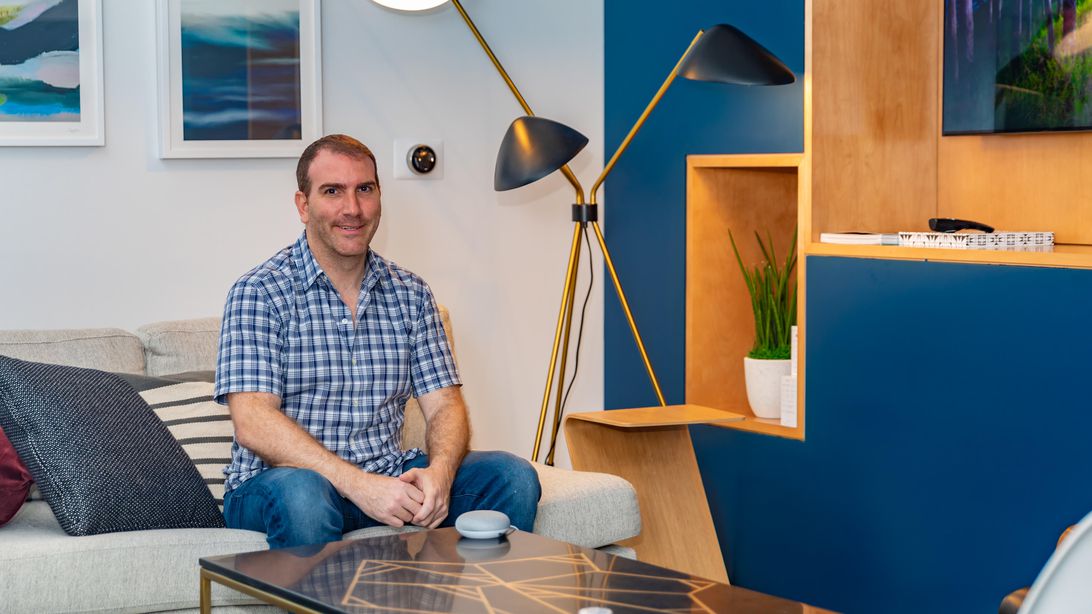One of the best ways to understand the potential of the Google Assistant is to watch how fast the voice-activated helper can now bring up Beyonce’s Instagram page.
“Hey, Google,” says Meggie Hollenger, a Google program manager, using the wake words that trigger the software on her smartphone. Then it’s off to the races as she shoots off 12 commands in rapid-fire succession. “Open the New York Times … Open YouTube … Open Netflix … Open Calendar … Set a timer for 5 minutes … What’s the weather today? … How about tomorrow? … Show me John Legend on Twitter … Show me Beyoncé on Instagram … Turn on the flashlight … Turn it off … Get an Uber to my hotel.” As she asks each question, the phone pops up the new information. The whole sequence takes 41 seconds. She doesn’t have to repeat the wake words between commands. When she makes the request to see what Beyonce is up to, the Assistant not only launches the Instagram app, it automatically takes us directly to the pop star’s page so I can see the latest photos she’s shared with her 127 million followers. Likewise, when Hollenger asks for an Uber, the software already knows where she’s staying.
‘Your own individual Google’
The new Assistant is the culmination of five years of work, says Francoise Beaufays, a principal scientist at Google. That’s longer than this software has been around. Over those five years, Google researchers have made key advances in AI audio, speech, language recognition and voice control. “What we did was reinvent the whole stack, using one neural network that does the whole thing,” says Beaufays. It’s a major technological breakthrough, bringing down the space needed from 100 gigabytes to less than half a gigabyte. Still, the souped-up digital helper requires hefty computing power for a phone, so it will only be available on high-end devices. Google will debut the product on the next premium version of its flagship Pixel phone, expected in the fall. Days before he unveiled the Assistant in May 2016, I sat down with Pichai in his glass-walled office, secluded within the sprawling Googleplex, to hear his pitch. The search giant, already years late to the digital voice assistant game, was finally getting ready to jump into the ring with Siri and Alexa. From the very beginning, Pichai was adamant it was much more than that. For Google, the Assistant is about breaking past the company’s iconic white homepage and spilling its engineering smarts into every piece of tech you own — your phone, your car, your washing machine. “It’s Google asking users, ‘Hi. How can I help?'” he said at the time. “Think of it as building your own individual Google.” Now as Pichai ushers in a new phase for the Assistant — including the feature that knows specific details about your family — it’s clearer than ever that when he said “your own individual Google,” he meant it. Google wouldn’t make Pichai available for an interview.Changing times
Of course, the world is a much different place than it was three years ago. For starters, the competition with Amazon is now a full-fledged rivalry. When it comes to smart speakers, Amazon’s Echo devices powered by Alexa own almost 67% of the market, according to research firm eMarketer. Google Home devices, driven by the Assistant, account for almost 30%. Google today unveiled the Nest Hub Max, a 10-inch smart display with the Assistant built in. Then there’s the public debate on privacy and security. Lawmakers and consumers are taking a harder look at the policies of big tech companies after Facebook’s Cambridge Analytica scandal, which brought data collection issues to the forefront throughout 2018. Google was criticized just last month for its Sensorvault database, which helps measure the effectiveness of lucrative targeted ads served to you based on the personal information Google knows about you. It turns out that police departments across the country have tapped Sensorvault for location data when trying to crack criminal investigations. In response, a US House of Representatives committee sent a letter to Pichai demanding answers about the database. Lawmakers have asked for an in-person briefing by May 10. When I asked during a product briefing last week what Google would do if law enforcement asked for data on family relationships and other info collected by Assistant, a spokesman said that Google doesn’t have anything to share on that front.
The evolution of Duplex
In addition to giving the Assistant a jolt of speed, Google is also updating the project that stoked the most controversy at last year’s conference: Duplex. The feature uses unnervingly human-sounding AI software to call businesses to book reservations and appointments on the behalf of Google Assistant users. Its AI mimics human speech, using verbal tics like “uh” and “um.” It speaks with the cadence of a real person, pausing before responding and elongating certain words as though it’s buying time to think. Last year’s demo immediately raised flags for AI ethicists, industry watchers and consumers, who worried about the robot’s ability to deceive people. Google later said it would build in disclosures so people would know they were talking to automated software. This new iteration is a lot tamer.



